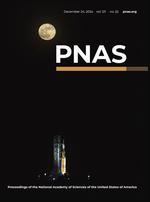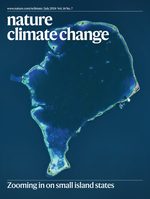The Oxford Martin Programme on
Pandemic Genomics
The Challenge
The control of emerging infectious diseases is a defining problem of our age. Growing global trade and mobility are connecting pathogens with new populations and as a result outbreaks of disease have become increasingly frequent.
Predicting which bacterium or virus will cause the next epidemic is not currently possible. Instead we must detect and analyse new human pathogens as soon as they emerge, and plan their control using all the information at our disposal.
Since the 1980s, the science of infectious disease dynamics has developed a sophisticated mathematical framework that is widely used to inform pandemic control and support policy decisions. This framework uses data on the number of cases through time and space to quantify past spread, predict future transmission, and calculate the intensity of interventions needed to end an epidemic.
However current approaches do not always fully exploit new sources of information about epidemic behaviour. Incorporating these promising data sources into epidemiological models has the potential to improve the accuracy and certainty of epidemic predictions
Two new types of information relating to epidemics have become increasingly available. Firstly, genome sequences from emerging pathogens can be generated almost as fast as cases are counted. Bacteria and viruses evolve as they spread, so their genomes contain a record of who-infected-whom – a ‘genetic footprint’ of past transmission events. Secondly, digital data sets that describe human population density and mobility in unprecedented detail are now accessible.
The Pandemic Genomics programme is bringing together mathematical epidemiology, pathogen phylodynamics, and human geography to build a new body of theory capable of co-analysing these distinct sources of information. The programme will develop and validate a prototype that will be tested on data from past and future outbreaks of emerging infectious disease.
Alongside this basic research, the programme is engaging with science advisors to develop a suite of policy tools that will explore how data on pathogen genomes and human mobility can better inform epidemic decision making.
The core scientific aim is to produce an analytical framework for emerging infections for the 21st century - one built on the assumption that pathogen genome sequences and human mobility data will be readily available during future outbreaks.
Latest news
View allMachine learning used to optimise disease surveillance
A new machine learning informed strategy could support public health leaders to design better surveillance during a disease outbreak.
Land travel and local mobility played a key role in COVID-19 spread in Chile
An international team led by researchers from the Oxford Martin Programme on Pandemic Genomics studied how local travel patterns and mobile data from Chile can improve global pandemic responses, highlighting the importance of land-based mobility and targeted strategies.
Researchers track how flu is affected during a pandemic
An international team of researchers, including researchers from the Oxford Martin Programme on Pandemic Genomics, have traced the global movement and evolution of seasonal influenza viruses to evaluate how the virus is impacted during pandemics.
Ancient DNA reveals how a chicken virus evolved to become more deadly
An international team of scientists led by geneticists and disease biologists from the University of Oxford - including biologists on the Oxford Martin programmes on the Future of Food and Pandemic Genomics - and LMU Munich have used ancient DNA to trace the evolution of Marek's Disease Virus (MDV).
people
videos
Panel Discussion: 'What turns spillovers into epidemics?'
'Infection dynamics and control in a changing world' with Jessica Metcalf
Prof Sir Andy Haines and Prof Chris Dye in Conversation: "Building back healthier: climate change, health and the recovery from Covid-19"
Prof Christophe Fraser & Prof Oliver Pybus in conversation: "21st century technologies for tackling 21st century pandemics”
Prof Chris Dye & Prof David Heymann in conversation: "Preventing and controlling pandemics: from SARS to COVID-19"
"Global maps of the spread of infectious diseases and their vectors" with Dr Moritz Kraemer
publications
View all
Genomic Characterization of Circulating Dengue Virus, Ethiopia, 2022–2023

Artificial intelligence for modelling infectious disease epidemics

Toward optimal disease surveillance with graph-based active learning

COVID-19 pandemic interventions reshaped the global dispersal of seasonal influenza viruses

Impacts of climate change-related human migration on infectious diseases

Routes of importation and spatial dynamics of SARS-CoV-2 variants during localised interventions in Chile
Keep in touch
If you found this page useful, sign up to our monthly digest of the latest news and events
Subscribe